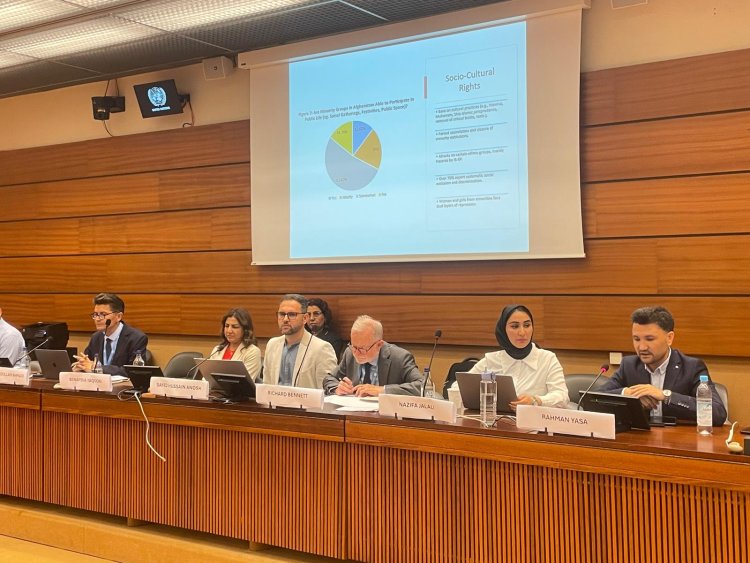UN Side Event Held on Taliban’s Systematic Discrimination Against Minorities

On the sidelines of the 59th session of the United Nations Human Rights Council, a panel titled “The Taliban’s War Against Minorities in Afghanistan” was held on Monday, June 16, at the UN headquarters in Geneva.
The event was organized by the Afghanistan Development and Democracy Organization (ADDO), in collaboration with Human Rights Defenders (HRD), the Civil Society and Human Rights Network (CSHRN), the World Organisation Against Torture (OMCT), and several other international organizations. The purpose of the session was to examine the critical situation of ethnic and religious minorities in Afghanistan and to raise international awareness about the Taliban’s discriminatory and exclusionary policies.
Speakers at the event included Richard Bennett, the UN Special Rapporteur on the situation of human rights in Afghanistan; Abdul Rahman Yasa, author of a research report on minority rights in Afghanistan; Banafsha Yaqoobi, Director of Rahyab Organization and former Commissioner of the Afghanistan Independent Human Rights Commission; and Nazifa Jalali, human rights activist and Director of Cheragh media. The session was moderated by Sayed Hossein Anoush, Executive Director of HRD.
In the main presentation, Abdul Rahman Yasa introduced the findings of his comprehensive research, which was developed through consultations with both women and men from inside and outside the country.
According to the report’s findings, ethnic and religious minorities in Afghanistan have been systematically excluded from the country’s political, economic, and cultural structures. The data revealed that 95% of respondents believe that minorities have been entirely removed from civic and political spaces, while 87% identified discrimination and lack of institutional support as the primary barriers to economic participation.
A significant portion of the research focused on the social and cultural dimensions of exclusion. Over 70% of participants reported experiencing social isolation and institutionalized discrimination. The report also documented cases of forced expulsions, destruction and confiscation of property, restricted access to education, healthcare, and humanitarian assistance, as well as bans on the use of minority languages and suppression of cultural and religious practices.
At the conclusion of the session, speakers emphasized the urgent need for the establishment of an international accountability mechanism to investigate human rights violations in Afghanistan, support victims, ensure regular documentation of abuses, and apply sustained legal and diplomatic pressure on the Taliban.
